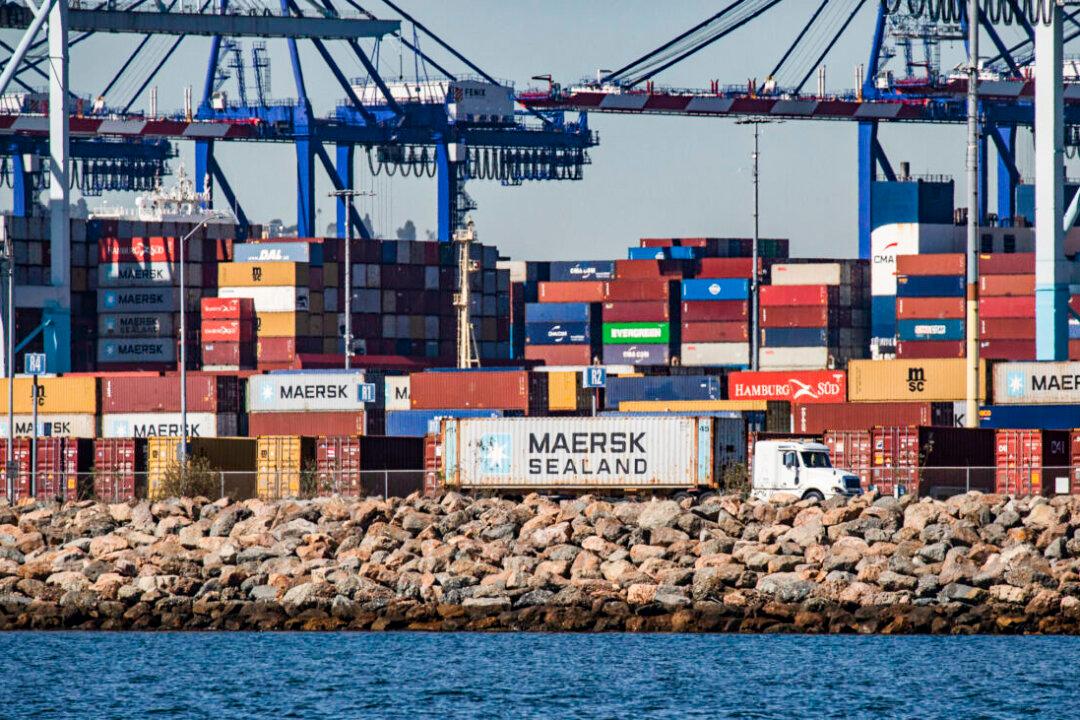LOS ANGELES—Shipping giant Maersk has informed customers the likelihood that the ports of Los Angeles and Long Beach will implement container fees has risen over the past month because of ongoing congestion issues.
“Given that congestion continues to impact vessel and landside supply chain operations, the likelihood of the [Biden Administration] implementing the fee has risen significantly this month,” reads a May 24 statement by Maersk.





